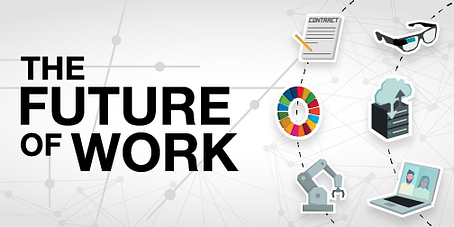views
The Future of Work: A New Era of Collaboration and Automation

The future of work is an ever-evolving topic, and it is one that has been the subject of much discussion in recent years. With advances in technology and changes in the way people work, it is clear that the future of work will be vastly different from what we know today.
One of the most significant changes that we can expect in the future of work is the increasing use of automation and artificial intelligence (AI). As machines become more intelligent and capable, they will be able to take over more tasks traditionally performed by humans. This shift is already happening in industries such as manufacturing and finance, but it is likely to spread to other sectors as well.
Another important trend in the future of work is the rise of remote work. The COVID-19 pandemic has forced many companies to shift to remote work, and this trend is likely to continue even after the pandemic is over. Advances in technology, such as high-speed internet and video conferencing, have made it easier than ever before for people to work from anywhere in the world.
The rise of the gig economy is another trend that is shaping the future of work. As more people turn to freelance work and contract positions, traditional employment models are being disrupted. This trend is particularly popular among younger workers who value flexibility and autonomy over job security.
One of the biggest challenges facing the future of work is the skills gap. As the nature of work changes, many workers will need to learn new skills to remain relevant in the job market. This is particularly true in industries such as technology and healthcare, where the pace of change is especially rapid.
Despite these challenges, there are also many opportunities in the future of work. New technologies and business models are creating new jobs and industries that did not exist just a few years ago. For example, the rise of the sharing economy has created new opportunities in industries such as transportation and hospitality.
Overall, the future of work is likely to be vastly different from what we know today. Advances in technology, changes in the way people work, and the rise of the gig economy are just a few of the trends that will shape the future of work. While there will be challenges along the way, there are also many opportunities for those who are willing to adapt and embrace change.
Do you want to To promote your business?
Get Your Business Featured at businessdor.com/get-featured/
Businessd’Or is a media company focused on business, innovation, investment, technology, entrepreneurship, leadership and lifestyle.











